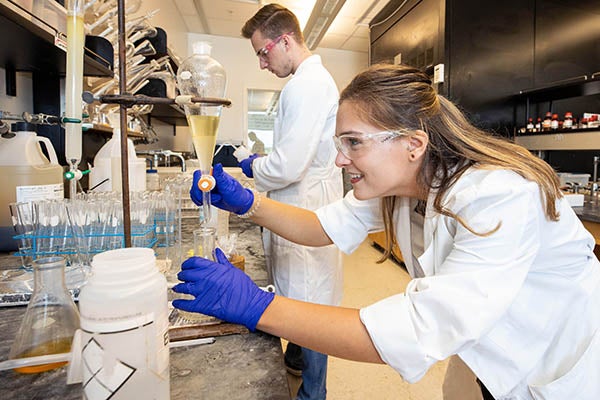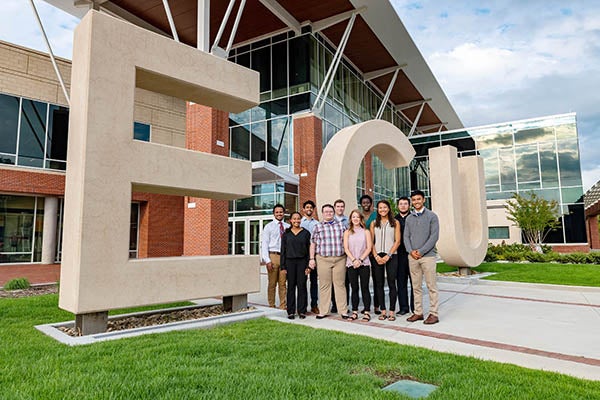Grant to help ECU support underserved student researchers

REU summer program members Avery Hatch, right, and Justin Neu participate in a lab in the Science and Technology Building at ECU in 2019. (Photo by Rhett Butler)
A $400,000 grant will ensure underserved students from across the country will continue to have undergraduate research opportunities at East Carolina University.
The National Science Foundation provided the funding for the 10-week summer program called Biomedical Engineering in Simulations, Imaging and Modeling (BME-SIM) Research Experiences for Undergraduates (REU).
The coronavirus has prevented the program from taking place this summer, but the grant means the program will continue for three more years starting with the summer of 2021.
The funding provides a stipend and covers the cost of on-campus housing, a dining plan and travel to the Biomedical Engineering Society annual meeting for REU participants.
Dr. Stephanie George, associate professor in ECU’s Department of Engineering and principal investigator for the grant, said the REU program provides authentic research experiences to 30 targeted underrepresented and underserved students, including women, minority students and students whose home institutions offer limited research opportunities.
“Exposing these students to innovative research will raise awareness of graduate school; thereby increasing application rates and ultimately the STEM graduate school pipeline,” George said. “Broadening participation by increasing the diversity of STEM professionals promotes the progress of science.”
George said students who participate in the program receive an improved understanding of the research process. Beyond that, they’ll have an increased awareness of graduate school, reinforcement of STEM career paths, greater identification as an engineer or scientist, and increased leadership abilities.

Participants in the 2019 Research Experiences for Undergraduates program pose in front of the Main Campus Student Center. (Paul George Photography)
The program emphasizes computational modeling, which allows the students to generate and test new theories, estimate variables that may be difficult to measure, incorporate subject-specific parameters and allow for experimental designs.
George said the grant would help the program that began in 2014 build on its successful foundation.
“New program elements include expanded professional development to cultivate leadership capacities, interactive and expanded recruitment methods, and a mixed methods evaluation plan with new evaluators,” George said.
The program matches students with faculty researchers. Previous research included modeling of plantar flexors in the foot to assess the effects of Achilles tendon rupture and rehabilitation. Another project involved the development of 3D subject-specific models to allow for more insight into the mechanics of the knee joint.
The research not only includes the College of Engineering and Technology but others such as ECU’s Department of Kinesiology and Department of Physical Therapy.